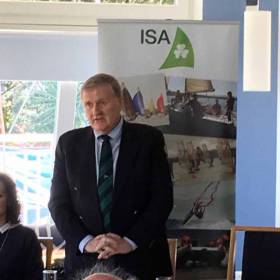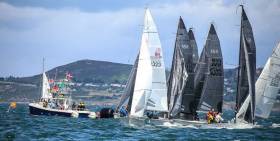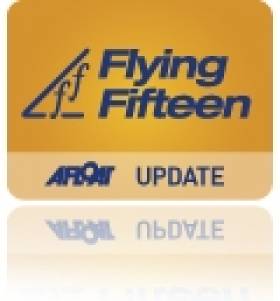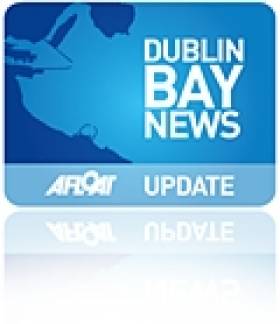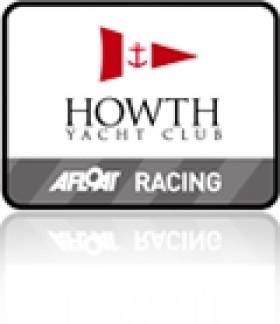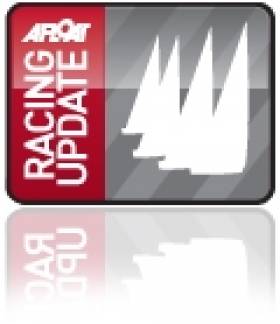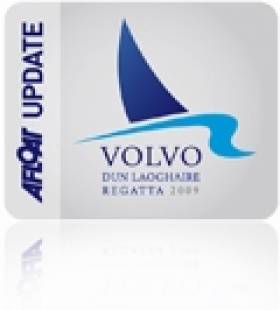Displaying items by tag: Jack Roy
London 2012 Olympic Race Officer Jack Roy from Dun Laoghaire succeeded David Lovegrove at Saturday's ISA agm at Howth Yacht Club.
Roy, a past dinghy and one design champion, has campaigned 420s, 470s, Flying Fifteens, J24s, Dragons, J109s and Squibs. He is a member of National Yacht Club, Royal Irish Yacht Club & Kinsale Yacht Club.
He also cruises keeps a cruising boat in Kinsale from where he sails the southwest coast and further afield.
An International Race Officer since 1998 he was the first Irish Race Officer at an Olympic Regatta in 2012 and is Chief Race officer at Ireland's largest yacht racing organisation, Dublin Bay Sailing Club.
Saturday's agm was followed by an ISA dinghy and one design keelboat forum to 'target growth in participation'.
London 2012 Olympic Games Race Officer Jack Roy, who is DBSC Principal Race Officer and ISA Director of Racing, is organising an ISA Race Officer Level 1 Course which will be run over two evenings – Tuesday March 28th and Tuesday April 4th in the National Yacht Club from 7pm to 10pm.
The course is a basic introductory course and is the first step on the road to becoming a Local Race Officer with the ISA. Each course participant will receive a certificate and this is the first step on the ISA Race Officers Pathway programme. Having successfully completed the course participants will be permitted to use the ISA Passport system which is an online logbook that records progress through the 5 disciplines of race management.
Jack will include some material specific to DBSC race management procedures and requirements. We would like to encourage anybody interested in race management to attend the course. For those who already have some experience it is an opportunity to complete the first step of the Race Officer Pathway programme.
The cost of the course is €20. You can register and pay online via the following link on the ISA website here
If you require any further information please contact Sarah-Louise Rossiter, ISA, email [email protected], or Ann Kirwan, DBSC, email [email protected]
Ireland’s Boats & People – How Do We Get Them Together?
The recently-published ISA Survey of Club Racing commissioned and supervised by Board Member Jack Roy has started the process of putting together a realistic picture of how we sail and go afloat for recreation, and it was analysed on publication here in Afloat.ie.
It’s logical to have made the beginning with club racing, as racing provides its own narrative and a straightforward set of entry numbers and results. But it will become more complex as the national authority tries to provide realistic figures for day sailing’s less competitive aspects. And of course, once we enter the world of cruising as defined by sailing and boating projects which include passage making, both coastal and offshore, together with overnight on-board stops, then it can become much more difficult to get meaningful data.
Yet with the ISA’s Cruising Conference for February 20th already booked out within a few days of being announced on Afloat.ie, clearly that is an area in search of services and support, a section of sailing which is difficult to quantify yet obviously of strong interest to a significant number of boat enthusiasts. W M Nixon takes a look at how the complexity of our sport’s many specialities makes it difficult to provide a clearcut picture for possible recruits to sailing.
Where would we be without the International Optimist Dinghy? The little solo-sailing boxes and their attendant support teams of mum and dad and the dog and the old 4X4 or station wagon or people carrier or whatever may seem to take up an awful lot of space and time, and all just so that one little person can go sailing.
But at least that one little person does go sailing. The ISA figures are brutally straightforward. In terms of genuine turnouts afloat at clubs throughout Ireland, in boat numbers the active Optimists are exceeded only by the Lasers, and this is arguably because Lasers aren’t age-limited, whereas the Optimists most definitely are.
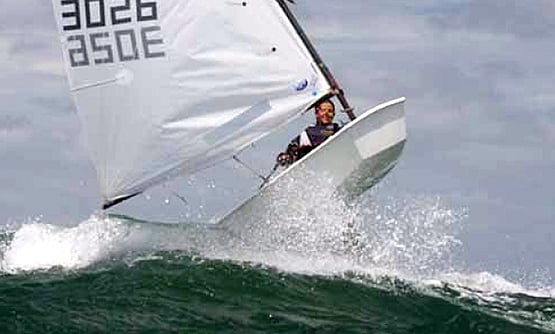
Optimist airborne. This is Ireland's second most popular class
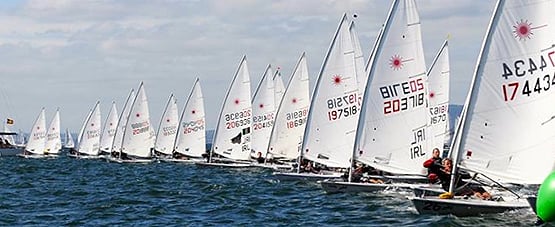
Ireland’s most popular dinghy class, the Laser is seen here at the Zhik Irish Nationals at Ballyholme
So we give a qualified cheer for the success of these two little boats. But it’s qualified because they’re single-handers which fail to provide any crew-relating sailing skills. Leading sailing figures as diverse as Des McWilliam of Crosshaven and Norman Lee of Greystones have been eloquent in promoting the notion that we should be doing more – much more – to encourage two-handed boats, and if we can persuade people into three-handed boats, well, so much the better.
Certainly that’s one of the reasons why our header photo says so much. A lone sailor in an Optimist or Laser promotes too much of a solitary, even an isolated image. And a two-handed boat like the GP 14, whose strong fleet figures in the ISA survey show the class’s vigour, is arguably just an act for a dynamic duo – it’s Strictly Come Dancing goes sailing…..
But getting three together to race a characterful boat like the National 18 with style – now that’s something special, that really is a superb combination of people skills interacting with sailing talent. And it’s a joy to behold. Yet anyone can see that for a complete beginner to sailing, this extraordinary silhouette of Tommy Dwyer’s National 18 against the November sky above the Hill of Howth will have an otherworldly air about it – “That’s not for me” is as likely a response as “Let’s have a go at that”.
Even those of us who have been in sailing for longer than we care to remember find the image decidedly thought-provoking, for we have some idea of what has been involved in creating the circumstances for this seemingly effortless balancing act, this lighter-than-air effect in the unlikely setting of a November afternoon.
Over the past year or so we have been recounting in Afloat,ie how the Cork Harbour National 18 Class, with very tangible backing from the Royal Cork Yacht Club, have been in the forefront of the development of the new ground-breaking Phil Morrison take on the long-established National 18, which is a developmental class which from time to time takes a leap in hull design, and moves forward in order to keep the spirit alive.
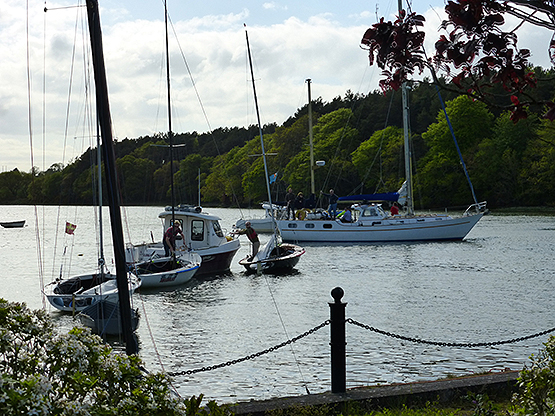
The National 18s are part of the fabric of Cork Harbour sailing. Before the new Morrison boats arrived in July, the old fleet were seen here in May 2015 after their annual race to Ballinacurra in northeast Cork Harbour in company with the Dwyer brothers’ cruising ketch. Photo: W M Nixon
Acceptance of this is something which seems to be bred into Cork’s National 18 enthusiasts, many of whom have the advantage of being firmly of the opinion that a proper dinghy needs three people to sail it. But the social matrix which has built up around Cork Harbour over many decades with this concept at its heart is not something which will necessarily travel easily to other areas, and although the six boats of the National 18 flotilla which visited Howth for the Open Day got a great reception and gave many people from other classes a marvellous time afloat, it’s probable that the very different mood around sailing in Dublin means that something so technically and socially challenging as a three man dinghy is a step too far.
Sailing in the greater Dublin area seems to exist within a framework of independent balloons. While there are those who will happily move from one boat type to another and cheerfully spread their talents and enjoyment about, by contrast there’s the Dublin Bay Sailing Club Thursday Evening Phenomenon.
Thursday is when the DBSC cruiser classes go out to race. And there’s an entire cohort of people, mostly folk who work in offices in the city, who on a Thursday evening go straight to Dun Laoghaire, get aboard a pontoon-based cruiser owned by someone else, go out and race in some very specific crewing job, then come back in and have supper in club or pub with their shipmates, and then that’s it until next Thursday. Just one evening each summer mid-week is their entire sailing programme. Weekends are for something else. And as for the hassle and mixed joys of boat ownership and maintenance, that’s not their department at all.
It’s a very metropolitan, very citified yet specialized way of doing things, and Dublin is one of the very few cities whose location facilitates it. It will be fascinating to measure it, for Dublin’s way of sailing is steeped in history and tradition. But for now it’s refreshing to look at a place which has had a sailing tradition in times past, but somehow lost it, yet it’s coming back again, and one of the good news stories towards the end of 2015 is that the new Youghal Sailing Club has been accepted into the ISA fold.
Youghal at present is a difficult place for sailing, as the tidal power of the mighty Munster Blackwater sweeps straight through the estuary and along the old town’s waterfront, and the creation of any meaningful modern facilities will have the immediate difficulty of silting by incredibly adhesive black mud.
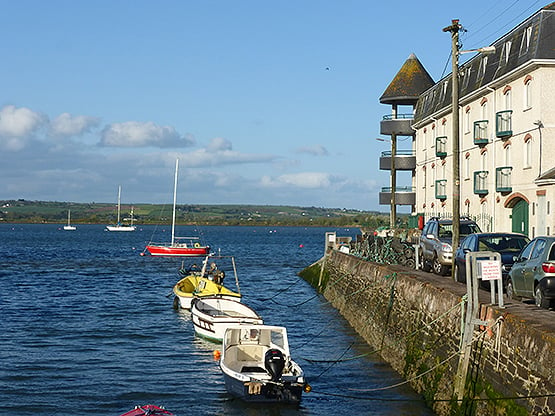
With the sun out, and the tide in, Youghal looks to be an ideal location for the easy installation of a marina….....Photo: W M Nixon
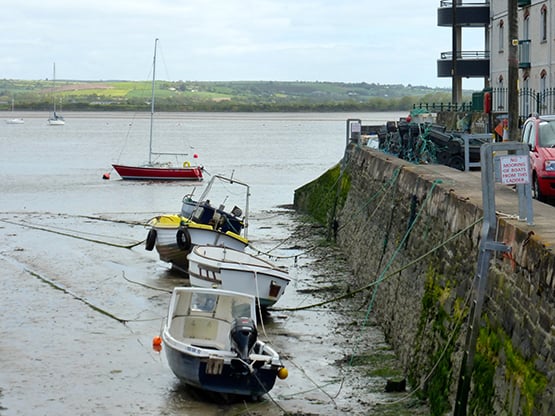
….but with the sun in and the tide out, the mud problem is revealed. Photo: W M Nixon
Thus, as dedicated Afloat.ie readers will have recently observed, no sooner had one group announced that a marina in Youghal was on the way than another longer-established group quietly suppressed the story, as they’re well aware of the engineering and dredging difficulties involved, and premature announcements will only slow any project in the long run.
In the fullness of time, a marina at Youghal will be a godsend for any cruiser plugging along the south coast. It’s not always the easiest coast in the world to make a passage along, sometimes it can seem an awfully long way to Cork from Dunmore East or Kilmore Quay even if you do make stopovers at Dungarvan or Helvick, and there are times when the hardiest seafarer is glad enough to get his boat secured to a good big pontoon.
But that’s for the future. Meantime, the locally-based keelboats are using either the restless anchorage off the town, or the more serene pool across the estuary at Ferry Point on the east shore, while the new club’s flotilla of GP 14s are stored in spare warehouse space during non-sailing time, and when they do go sailing it turns out their clubhouse is a moveable feast - it’s a caravan which can be towed to a choice of sailing locations.
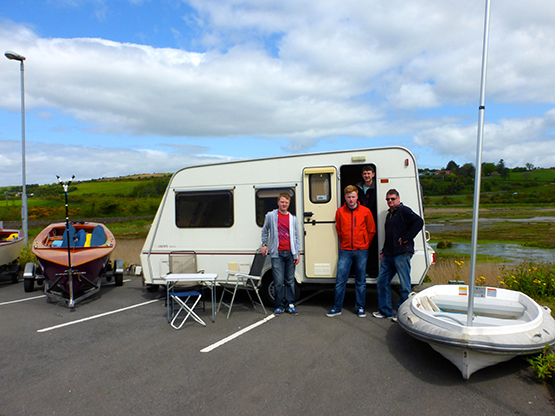
A moveable feast. Members of the newly-affiliated Youghal Sailing Club with their caravan HQ, Adrian Lee in doorway. Photo: W M Nixon
On the national stage, it is young Youghal GP 14 sailor Adrian Lee who has been among those flying the club’s flag, and there’s hope in the air. When we were there in May on a fine day that promised a summer which never arrived, we couldn’t help but think that when they do get their facilities and maybe even a clubhouse, they’ll look back to the days of the caravan and ad hoc racing arrangements with sweet nostalgia. For sometimes, it’s much better to be travelling than it is to arrive.
But for the rest of us, the message from Youghal is simple. The sea is for sailing. Use it or lose it. By all means get proper people surveys done which indicate the way numbers are shaping up and things are going. But really, if you want to persuade people to go sailing, the best way is by example, getting afloat as much as possible yourself. And maybe then you’ll find the time to welcome aboard newcomers too.
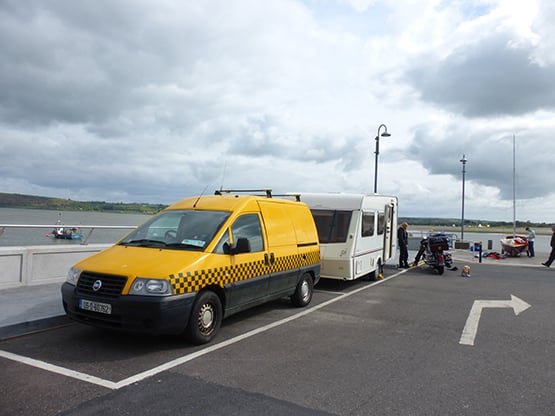
Reviving Youghal sailing – on race days, the club’s caravan is simply towed down to the pier and the races are started from there. Photo: W M Nixon
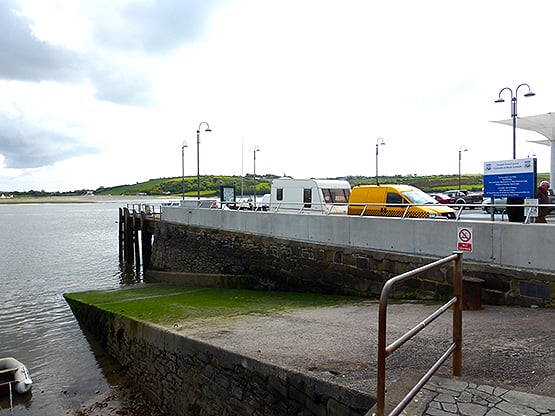
Youghal’s massive public slip provides launching for the YSC sailing dinghies, but during 2015 the boats had to be stored at the other end of town when not in use. Photo: W M Nixon
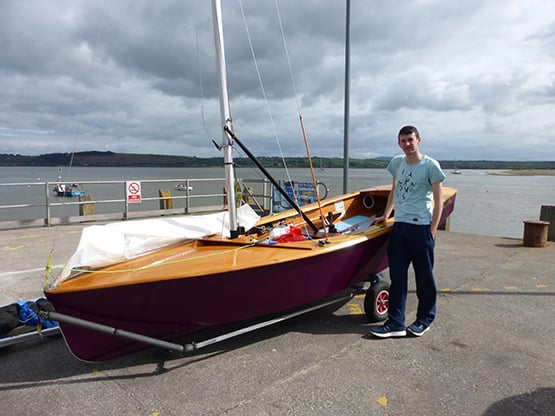
The pace-setter. Adrian Lee of Youghal SC with his Duffin-built GP14. Photo: W M Nixon
Click to download: ISA Survey of Club Racing
'Frequent Flyer' Takes First Race of Flying Fifteen DBSC Season
#flyingfifteen – The Mitsibushi Motors sponsored Flying Fifteen fleet turned out in good numbers with 13 boats competing in the first race of the DBSC 2015 season on a beautiful sunny evening with a nice force 3 breeze from the S/SE on Dublin Bay.
In their eagerness to get the season started and with the help of a strong ebbing tide a number of boats were over the line, some went back and some didn't! The pin was biased but there was more wind in towards the shore. Colman/Quinn and O'Sullivan/Ryan who started at the pin and tacked across were in good shape approaching the first mark followed closely by Doorly/Green and Alan Balfe.
This is the way it stayed for the first half of the race, Doorly got past O'Sullivan on the run down to Pier mark, it was a beat back up to Omega mark and then a run to Pier, on the run the wind was stronger from the back and the fleet closed up with Gorman, sailing with Sarah, and McCambridge moving up the fleet after poor starts. Colman remained in front with Doorly close behind and then a gap to Mulvin/Beirne. Colman/Quinn crossed the line but there was no gun so Doorly/Green got the first gun of the season. Mulvin was second with Gorman third followed by Balfe and O'Sullivan who had sailed a very good race.
Well done to the PRO Jack Roy and his team on Freebird for a great race in perfect conditions. This Saturday the DBSC series starts and it is hoped that a few more boats will make it out.
Full DBSC results from last night's racing here
Olympic Race Officer To Explain How To Run Yacht Races
#yachtracecourse – Olympic Race Officer Jack Roy is giving a course this Wednesday in the Royal Irish Yacht Club, Dun Laoghaire for all those who want to run races or help on committee boats in any capacity.
The course is also suitable for sailors seeking a better understanding of the racing rules surrounding race organisation and course laying.
With a number of high profile events coming up in 2015, including the Volvo Dun Laoghaire Regatta and the Dublin Bay Sailing Club schedule, Dun Laoghaire will be looking for more volunteers this summer! The cost is €10 (to cover soup and sandwiches). For more click here.
Olympic Race Officer Jack Roy To Give Talk at Howth YC
#HYC - Next week Howth Yacht Club will host international race officer Jack Roy of the National Yacht Club, who will give an illustrated talk on his experiences in Weymouth at the London Olympics last summer.
Roy was selected by the ISAF as a technical officer, one of only seven race officers selected to supervise the UK race management teams at the Olympics.
He was also the only one of the seven who rotated through all the courses, and his talk gives a fascinating insight on how the Olympic regatta was managed.
Roy's talk takes place at the HYC on Wednesday 13 March at 8pm, and will last about 75 mins with time for questions afterwards. Admission is free, but a voluntary donation to the RNLI is expected (€5 suggested).
Irish Race Officers Attend RYA Race Officials Conference
#rya – The RYA Race Officials Conference is fast becoming a major international event writes Irish National Judge and Umpire Gordon Davies.
This year the conference returned to Wyboston Lakes in Cambridgeshire, far from the sea but north of Watford and convenient for train and air travel and an Irish race officer delegation attended.
This biennial event continues to grow. Earlier conferences were organised for Race Officers, Judges and Umpires. In 2011, Mark-layers were invited for the first time in 2011. The 2013 edition was notable for the presence for the first time of Measurers. In all, 220 race officials attended the conference, with 21 visitors from 10 nations: Norway, Denmark, Sweden, Netherlands, Slovenia, Canada, USA, Russia and Ireland.
This year, as Ed Alcock, ISA Racing Manager explains "Members of the ISA Race Officials Advisory Group attended and contributed to 20 workshops during this conference as a means to learn from the RYA education system to the benefit of officials and sailors in Ireland."
The highlight of the event are the large number of workshops treating a wide variety of subjects. Whilst the speakers are selected for their knowledge of the subject the participants are often experts in their own right. I was somewhat surprised, for example, when called upon to speak on the rather obscure subject of umpiring radio-sailing regattas, to be faced with an audience including several well-known umpires including not only the editor in chief of the Call Books for Match Racing and Team Racing, but also the person credited with inventing team racing umpiring Also listening attentively was a multiple World Champion in several Radio-Sailing classes, who is also a National Judge!
Chairman of the RO Advisory Group Jack Roy, who worked with many of the top British race officials before and during the Olympics revealed the reasoning behind this delegation: " It is important we have a close working relationship with our neighbours in the RYA, they are very generous with help and information. Having recently been responsible for, arguably the best Olympic Sailing Regatta ever, the RYA have first hand experience in providing the highest level of Race Management " Mike O'Connor added "It was great to work with such high level participation from the UK and around Europe on delivering unified race management and applying the new updates to the racing rules across different disciplines".
Bill O'Hara, fully recovered after his summer spent with the Russian Women's match racing team at the Olympics ran a workshop on "Raising Tactical Awareness for Umpires" Bill gave full credit to Chris Watts, RYA Race Officials Education Officer "The conference was incredibly well organised". Bill particularly appreciated the session on "Questioning Skills" run by John Sturrock, more accustomed to improving the interrogation skills of leading lawyers and parliamentarians, including members of Oireachtas. Bill O'Hara was one of several race officials from Northern Ireland to attend, including Robin Gray and Denis Todd.
Irish team racers will undoubtedly be pleased to hear that Peter Price was awarded the status of RYA Umpire Emeritus. Peter, from West Kirby, sailed and won the Wilson Trophy many times, and then ,in 1987, lead the first umpire team to officiate at the event. Peter has sailed many times in Ireland, both in team racing and in his Dragon, and has umpired at many events here.
Ed Alcock reminds us that the Irish participation at the conference will benefit local race officials "The ISA Annual Conference on March 2nd will include interesting points from these workshops in presentations from Jack Roy, Michael O'Connor and Ed Alcock in the areas of Race Management, rules issues in clubs and the new rules, including launching the new Racing Rule Book for 2013-2016.We would recommend all ISA officials and clubs to be present and look forward to receiving visitors from the RYA."
Presentations made at many of these workshops are available on the RYA website.
Dublin Race Officer Appointed to London Olympic Sailing Competition
#OLYMPIC – Dublin Race officer Jack Roy has been congratulated by the International Sailing Federation (ISAF) this morning on his prestitgious appointment as a race officer for the London Olympics. He had been shortlisted last November but confirmation of one of the top jobs in the sport of sailing has only been received today.
The National Yacht Club and Royal Irish Yacht Club member was one of only 25 rated for one of the most important roles in a race official's career. As reported in April last season Roy had been part of a panel of 25, from which 16 were chosen this week to run the London regatta.
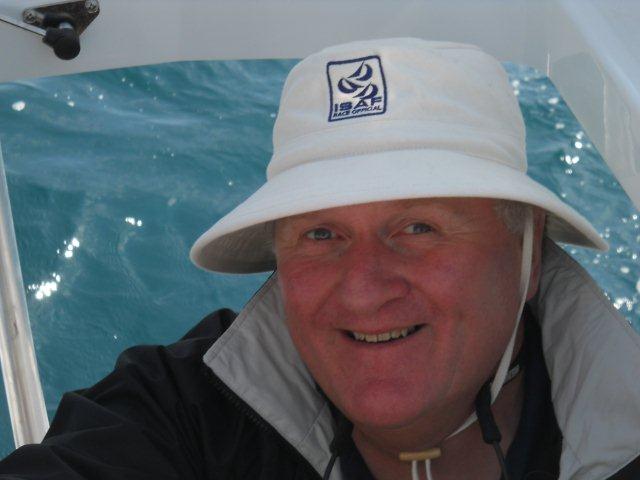
Dun Laoghaire Race Officer Jack Roy who will officiate at the 2012 Olympic Sailing Regatta in London
Roy has already run the 2011 sailboard and Laser races at the Olympic test event as part of a 180–strong race management team.
Roy is based in Dun Laoghaire and is a former Flying fifteen champion sailor. A member of the National Yacht Club, he has acted as Race Officer for many World and European championships run on Dublin Bay in recent years including Flying Fifteen Worlds, Laser 4.7 Europeans, 2007 Etchell European Championships, Volvo Dun Laoghaire Regatta, Cork Week, and SB3 Worlds 2008.
The International Sailing Federation confirmed Roy's apponitment this morning as a member of the race management team at the 2012 London Olympic Games Sailing Competition which will take place in Weymouth (GBR) from 27 July through to 12 August.
His specific role on the race management team will be advised by ISAF shortly.
First entries in for Volvo Dun Laoghaire Regatta
July's Volvo Dun Laoghaire regatta has taken in 22 entries six months ahead of the first race. It's an encouraging figure that's on a par with the 2009 VDLR, the biggest regatta in Irish sailing that year.
The positive early response is an indication, says organiser Adam Winkelmann, that the 2011 fleet, should be a bumper one too when it sets sail on July 7th for the four day event.
The emphasis is again on providing quality racing over different courses each day but organisers are also aiming to live up up to the regatta's pre-event billing as a 'Mega Party'.
The event has opened a new website, a new Facebook page (with afloat.ie, so if you're a Facebook user please show your support and 'like it'). The regatta site is also featuring the youtube clip below of events on the bay two years ago.
So far entries received are spread across nine separate classes but it's a visiting Wayfarer fleet with eight boats named already that is setting the pace. The organisers are expecting up to 50 of the two man classic design for the class National Championships that's being staged as part of the regatta.
The notice of race (NOR) was published online in October and highlighted a reduced entry fee for 'earlybird entries'. Click HERE. or scroll down to download it as a PDF. If you participated in 2009 and entered online, this year you only need to enter your email address.
Three boats are entered in the non spinnaker class and another three in the Squib keelboat. Two entries have been received in both IRC 2 and 3.
It's still too early for a table of bands to be decided but the organisers intend to give some indication of handicap break-ups as the entries build. The IRC bands will be in line with those laid down by the Irish Cruiser Racing Association.
Despite the fact the regatta's strength since 2007 is that it draws on the capital's own fleet of 400 boats it is in fact visitors from elsewhere on the east coast that are first in. East Down Yacht Club, for example, has four entries.
But locals are signing up too. Single entries have been received in the Mermaid, Beneteau 31.7, Dragon and IRC Zero classes.
Course areas are likely to stay the same according to principal Race officer con Muphy of the National YC. Th race team is Alan Crosbie - KYC, Peter Crowley - RCYC,
David Lovegrove - HYC, Harry Gallagher - HYC, Henry Leonard - RIYC, Jack Roy - RIYC and Con Murphy - NYC. Mike Butterfield will head up the jury.
The organisers are on the look out for volunteers to assist in the run up to and during the country's biggest sailing event. In 2009 over 300 helped to make it the biggest participant sport event in the country after the city marathon, with over 3,500 sailors afloat. More details from Ciara in the event office HERE.



























